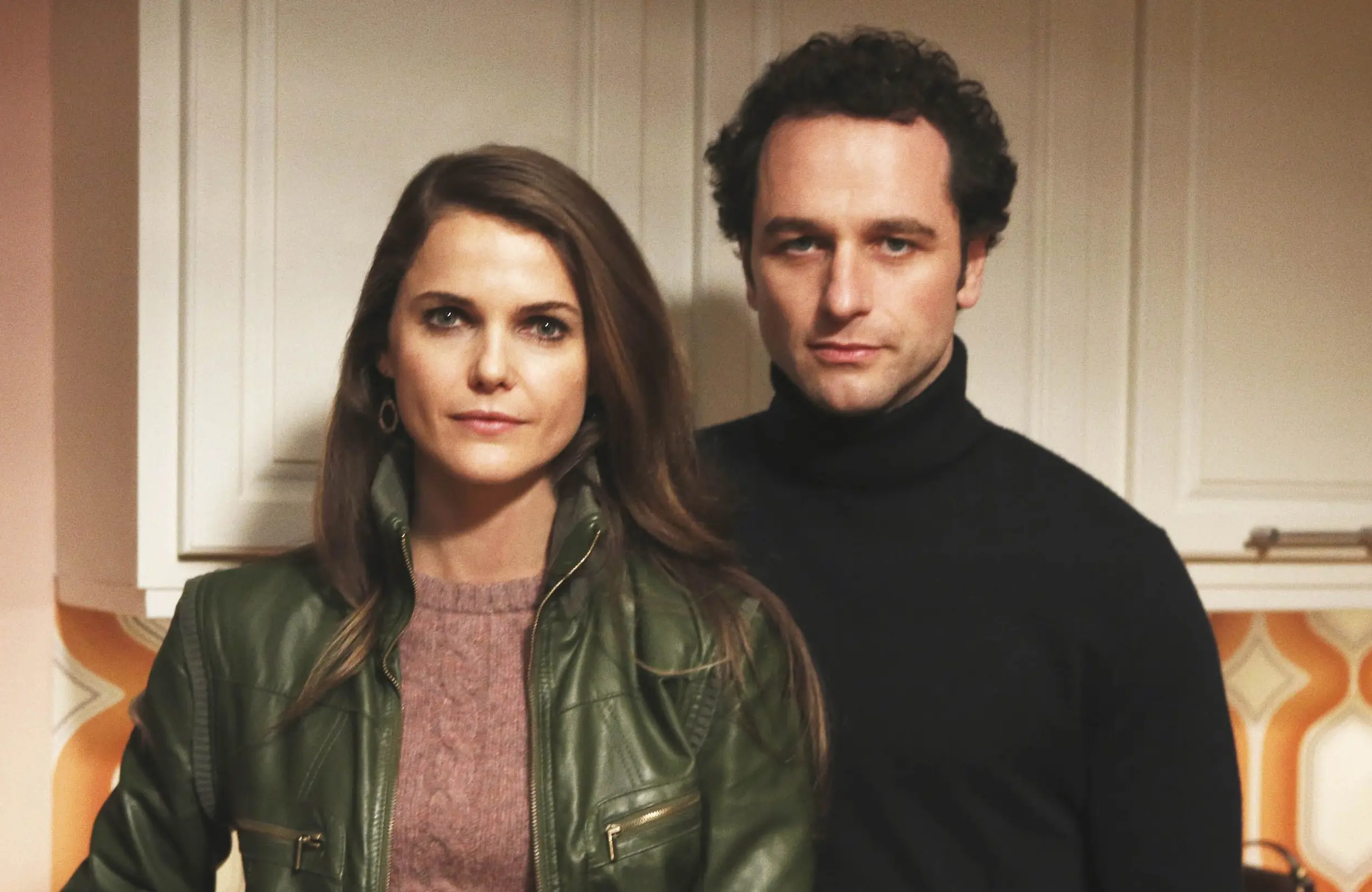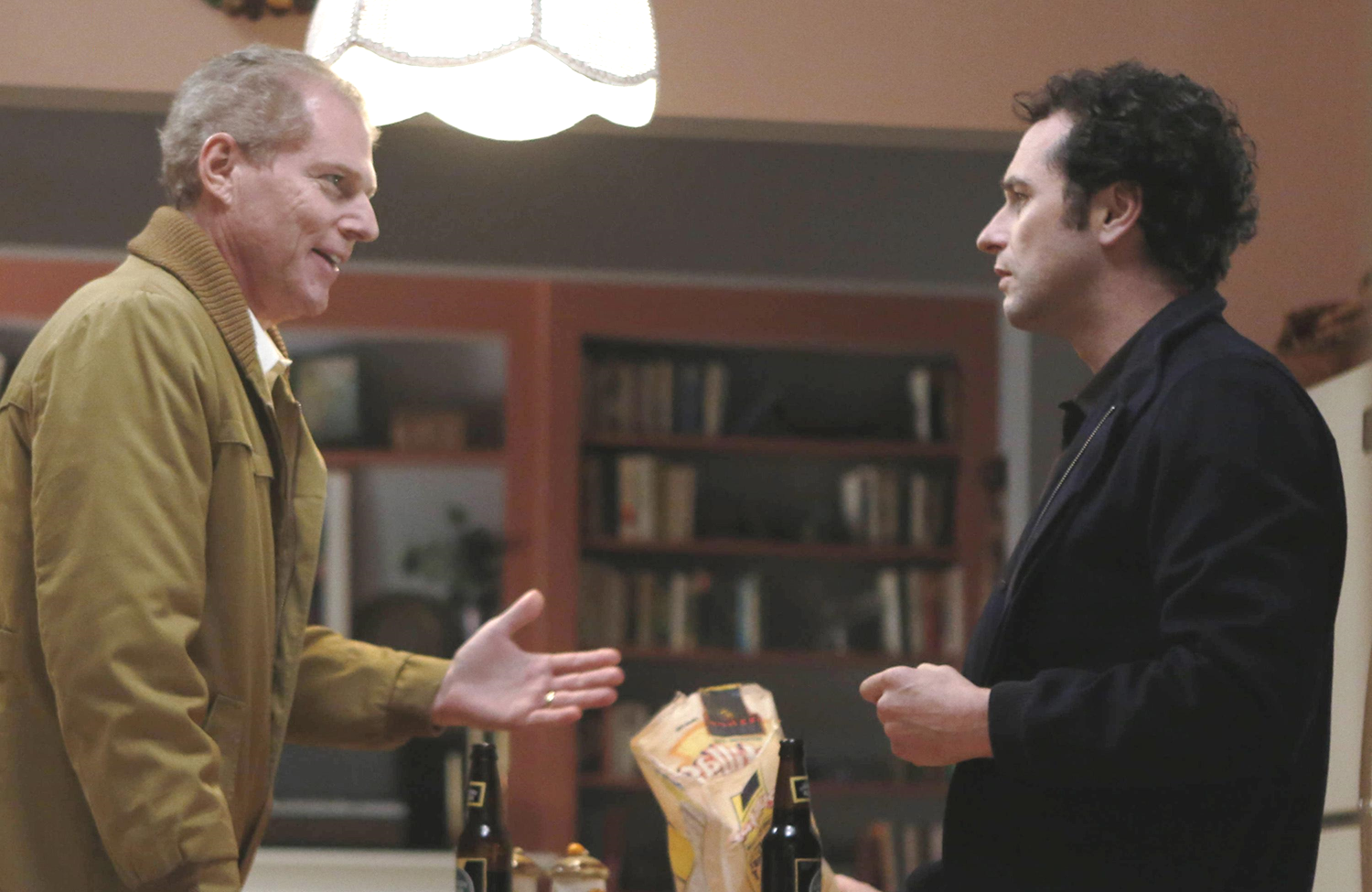The Americans Had No Idea How Right It Was
-
 Keri Russell and Matthew Rhys star as Liz and Philip Jennings in The Americans (FX)
Keri Russell and Matthew Rhys star as Liz and Philip Jennings in The Americans (FX)The Americans
Season 1, Episodes 1-4
Watch on AmazonIn 2010 the FBI announced it had rounded up ten Russian agents who had spent years blending in as everyday Americans. They had suburban homes and families, worked everyday jobs, socialized with neighbors, and had seemingly ordinary lives other than the occasional money drop and late-night cryptography session. Eight of the ten suspected spooks were married couples.
The feds were adamant that this was a major espionage bust. The suspects worked for Russia’s foreign intelligence arm, the SVR, and as the FBI put it, “their intent from the start was serious, well-funded by the SVR, and far-ranging.” Most people, though, had a hard time taking the news seriously. The World Cup was that summer, and David Letterman joked that in order to blend in, the Russians “were pretending they loved soccer for two weeks.” Cheesecake photos of one defendant, Anna Chapman (who later became an Instagram star), went viral, earning comparisons to the Bond girls. Yes, Bond girls.
Speaking of anachronisms — Russian spies, really? The whole thing felt “like a throwback to the cold war,” as more than one news outlet described it. And we won that war, did we not?
So you could hardly blame Joe Weisberg, a former CIA officer, for creating a spy thriller “inspired” by the events of 2010 … but deciding it might be more believable as a throwback show. The Americans, all six seasons of it, takes place in the Eighties, at the end of the Cold War, when the Russians were last said to pose a threat to our way of life. A time when nuclear annihilation was as close as Three Mile Island or a president’s trigger finger. And — because we’re now living in the Mad Men era — a time when people drove hulking gas-guzzlers, talked on landlines, wore washed-out denim, and did all the other things modern audiences find irresistible.
Looking back on that first season of The Americans from 2013, it’s obvious that we were selling the enemy short. And how about that counter-factual premise now? The notion that Russian spies were (or are) actually pretty good at their jobs, and really could (or can) sweet-talk their way into the upper echelons of the U.S. government, nyet so crazy. (For those readers who think only Republicans fall for flame-haired Russians, the FBI reportedly moved in on SVR sleeper cells in 2010 out of concerns that Chapman would seduce someone in the Obama Administration.)
Today on The Overlooked, revisting Season 1 of The Americans, a period piece within a period piece, and a show way more relevant today than when it first aired.
As a card-carrying history buff, there’s something about these retro shows that will always chafe me — how major historical events are used as window dressing, how more thought is put into depicting our parents’ smoking, drinking, and drug habits than in what wisdom the past might have for us today.
But when historical TV works, it really works. There was a purity to the way Mad Men sailed through the cultural riptides roiling the country, Don and Peggy staying focused on their own personal messes while dreaming up new ways to awaken material desires in middle America. In the finale, when Don entered a New Age retreat and emerged with an advertising jingle that perfectly captured — and co-opted — the spirit of that age, I woke up the house with my cheering.
This is the path The Americans chose. From the get-go it signaled that it was an ambitious, richly-defined character-driven show with a timeline that dared to parallel and comment on an entire era, in this case the Reagan presidency and the final act of the Soviet era. But when it premiered in 2013, I doubt anyone connected with the show dreamed that it would invite comparisons to U.S.-Russian relations today. (By the final season in 2017, that had clearly changed.)

Season 1 is set in 1981. Elizabeth and Philip Jennings (Keri Russell and Matthew Rhys) run a travel agency and raise two kids in a leafy D.C. suburb. They are 15 years into a sham marriage put together by the KGB (which back then handled both domestic and foreign spying). In the opening scenes we see Elizabeth in bed with an FBI higher-up and Philip stuffing a KGB defector into the trunk of his car. Back home, though, their union appears to be blissfully boring, at least on the surface.TV critics only got two episodes of The Americans to screen before the premiere, but that was enough to convince most of them that the show’s unconventional premise and casting were paying off. “When I heard Keri Russell would be playing a fierce KGB agent in FX’s The Americans, I had the same reaction I had when I heard Claire Danes would be a bipolar FBI agent in Homeland: It won’t work,” is how Matthew Gilbert opened his review. But Gilbert found Russell’s performance “remarkable” and the show “first-rate.”
Rhys’ performance as Philip is just as compelling. For all the violence he metes out in the first two hours, his character is surprisingly nuanced, even vulnerable. Philip has feelings for Elizabeth and, as we learn in flashbacks, he always has. (Rhys and Russell would later become an item in real life.) As the seasons progressed, fans and episode recappers of The Americans found themselves rooting for these two mixed-up Russkies to succeed in their marriage, if not their mission.
Sadly, as The Sopranos taught us, having frequent casual sex with strangers and brutalizing former friends can take a toll on a marriage. And then add to that the nagging suspicion that you yourself are being watched. Almost too conveniently, the family that moves in next door to the Jenningses includes an FBI agent, Stan Beeman (Noah Emmerich), whose last assignment was infiltrating a gang of white nationalists. Spy work has also put strain on his marriage, though Sandra (Susan Misner) hasn’t a clue what Stan does at the bureau.

It was too bad that the earliest reviews of The Americans were based on two episodes, because Margo Martindale came along in Episode 3. She played Elizabeth’s supervisor in a recurring guest role and, as often happens with Margo Martindale, made herself essential to the series, eventually triggering the William Christopher effect in the opening credits.And then there was Episode 4. For the first but not the last time in The Americans’ run, Episode 4 asked a question that my favorite cultural shows — Mad Men, The Wire, M*A*S*H — have all asked: namely, what’s so great about being American?
Episode 4 is the one where Ronald Reagan is shot.
If you’re old enough to remember that day when John Hinckley Jr. fired at the president outside the Washington Hilton, you may recall that for hours the whole country was in the dark. Reagan didn’t appear to have taken a bullet, so the presidential motorcade made a beeline for the White House. Suddenly the motorcade was diverted to George Washington Hospital. That decision, made after a Secret Service agent noticed Reagan coughing up blood, probably saved the president’s life.
But with limited communications from the hospital, deputy press secretary Larry Speakes struggled to calm a bewildered nation from inside the White House briefing room. (His boss, James Brady, was gravely wounded in the attack and was mistakenly reported to have died.) The vagueness of the press briefing infuriated Secretary of State Alexander Haig, a retired 4-star general, who was watching from the Situation Room. When Haig could take it no longer, he stormed upstairs and seized the podium from Speakes.
Looking sweaty and a little winded, Haig declared on live TV that “as of now, I am in control here in the White House.” He then proceeded to erroneously name himself as third in line to the presidency behind Vice President Bush, who was nowhere to be seen (he was on a plane back to Washington).
If Haig’s pronouncements “were meant to reassure the public and the media, they may have had precisely the opposite effect,” wrote historian Herbert Abrams. Another observer, Martin Anderson, was more blunt: “For millions of Americans watching for news of whether President Reagan was alive or dead, Haig’s words sounded ominously like a veiled grasp for power.”
This moment in American history, one that would follow Haig to his grave, turns out to be a fantastic jumping-off point for Episode 4 of The Americans. The Russians may be great at mastering our accents, but understanding our constitution? Not so much. A general standing at a podium declaring himself the leader of the country means something very different to a generation raised by Stalin and Khrushchev.
And this fundamental misunderstanding gets at a key insight that makes this episode, and The Americans generally, an exciting clandestine history lesson. We’ve got the 25th Amendment. Russia doesn’t. We have a free press that is often as mystified by the news of the day as the rest of the public. In Russia, all confusion is sorted out before the cameras ever roll. We have gridlock and shouting and polarization. In Russia, things run smoothly thanks to one man, who has been head of state for 20 of the past 28 years. (What was he doing in the Eighties? Recruiting spies in East Germany.)
During a presidential debate in 2012, Mitt Romney called Russia the country’s “No. 1 geopolitical foe,” and was mocked almost as mercilessly for that as his binders-full-of-women comment. “The 1980s,” Barack Obama joked later, “they’re calling to ask for their foreign policy back!” Joe Weisberg said the original idea behind The Americans “was really to say, ‘Hey look, these people who we think of as enemies are just like us.’” I get why a veteran of US-Soviet spy games would say that. But watching The Americans makes me wish we could call up the Eighties and ask for our old moral clarity back.
People are talking about The Americans in our forums. Join the conversation.
Aaron Barnhart has written about television since 1994, including 15 years as TV critic for the Kansas City Star.
TOPICS: The Americans, FX, Prime Video, Keri Russell, Margo Martindale, Matthew Rhys